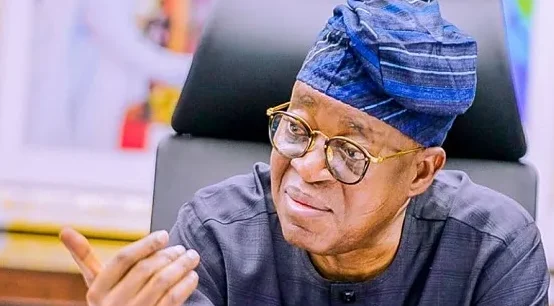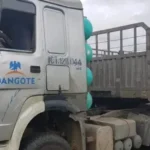According to a report from The Guardian Nigeria, Minister of Marine and Blue Economy, Adegboyega Oyetola, has said insufficient funding is responsible for the delayed take-off of Baro Port in Niger State.
The minister, however, said that the Federal Government is committed to ensuring that the port is a vibrant inland gateway. He gave the assurance on Tuesday when he appeared before the House of Representatives Ad-Hoc Committee on Stakeholders’ Engagement on the Challenges and Prospects of the Baro River Port.
The adhoc committee was constituted after the adoption of a motion on the need to convene a national stakeholders engagement on the challenges and prospects of the Inland Port. Oyetola acknowledged that the Port has been struggling to operate at capacity since its commissioning in 2019 due to gaps in supporting infrastructure and navigability.
He said, “Although commissioned in 2019 under the past administration, the port has faced operational constraints, chief among them, the absence of critical linkages to road and rail infrastructure, and navigability challenges along the River Niger. “The challenges are there, no doubt about it. When the issue of the port was being conceived, ordinarily one would have expected that infrastructure that would make it operational should have been provided.
“The ministry was created barely two years ago, so we inherited it from the previous administration. And part of what we’re trying to do is to ensure the need to do a lot of dredging. Unfortunately, we are hampered by the scarcity of funds”. The minister however outlined concrete steps to overcome the existing challenges and unlock Baro Port’s full economic potential.
According to him, the measures include improving river navigability through capital and continuous dredging, developing road and rail connections for seamless cargo movement, attracting credible private sector operators through concessions and partnerships, and instituting transparent governance systems.
He informed the Committee that the National Inland Waterways Authority (NIWA) plans to dredge up to 2,000 kilometres of inland waterways, a move that will ensure Baro Port maintains the appropriate depth for year-round operations.
He added, “Our Ministry remains unwavering in its determination to transform Baro from a dormant facility into a thriving inland gateway.We are working closely with the Federal Ministries of Works and Transportation to deliver an integrated framework that combines infrastructure, operational efficiency, and private sector participation.”
Oyetola noted that, Baro River Port which is located in Niger State is strategically positioned to link agricultural value chains and serve as a feeder to Onitsha, Lokoja, and Warri ports.
According to him, once operational, it could significantly boost Nigeria’s trade competitiveness under the African Continental Free Trade Area (AfCFTA) and ease pressure on the nation’s highways.
In his presentation, the Managing Director of the National Inland Waterways Authority (NIWA), Bola Oyebamiji, recalled that the Baro Port was first established in 1908 by Lord Lugard to facilitate the shipment of agricultural produce and livestock, serving as a major trade link between northern and southern Nigeria.
He noted that the port holds significant economic potential for the country, with all necessary facilities and equipment already in place.
He, however, identified the lack of dredging, as well as inadequate road and rail connectivity, as key challenges preventing the port from reaching full operational capacity. Oyebamiji informed the committee that the project was awarded by the previous administration for N3.56 billion, of which N3.35 billion, representing 94 percent, has already been paid to the contractor.
He further added that arrangements are currently underway to concession the port to private operators to attract fresh investment and ensure its effective operationalization. Also speaking, Minister of Transportation Sa’idu Ahmed Alkali revealed that his ministry is developing a rail line to connect Baro Port with the rest of the country.
He acknowledged funding as a major hurdle and appealed to lawmakers for adequate budgetary provisions to ensure the linkage is completed.
Speaking earlier, the House Ad-Hoc Committee Chairman, Rt. Hon. Saidu Musa Abdullahi, underscored that the panel’s role is not investigative but facilitative, aimed at ensuring the full operationalization of the port. He disclosed that the current engagement will be followed by a national stakeholders’ forum to build consensus and mobilise political, technical, and financial backing for the project.
Abdullahi stressed the committee’s determination to see Baro Port fully utilised, describing its strategic value to national trade, regional connectivity, and economic diversification as “immense and non-negotiable.”
The Minister, while responding to a question by a member of the Committee, Hon Jonathan Gaza Gbefwi, said that Baro Port has been a priority, but there has been a lack of funds to dredge to make it navigable early enough.
He said, “But essentially, the funding thing has been a constraint, and I believe with your committee now recommending the need to ensure adequate provision is made for some of the infrastructure, I believe those challenges will be a thing of the past.”
After the various submissions by the Ministers and other heads of agencies, the Committee resolved that it would embark on an on-the-spot assessment of the Port on Saturday to see what would be done to make its operations a reality.
ZeeNaija.com


